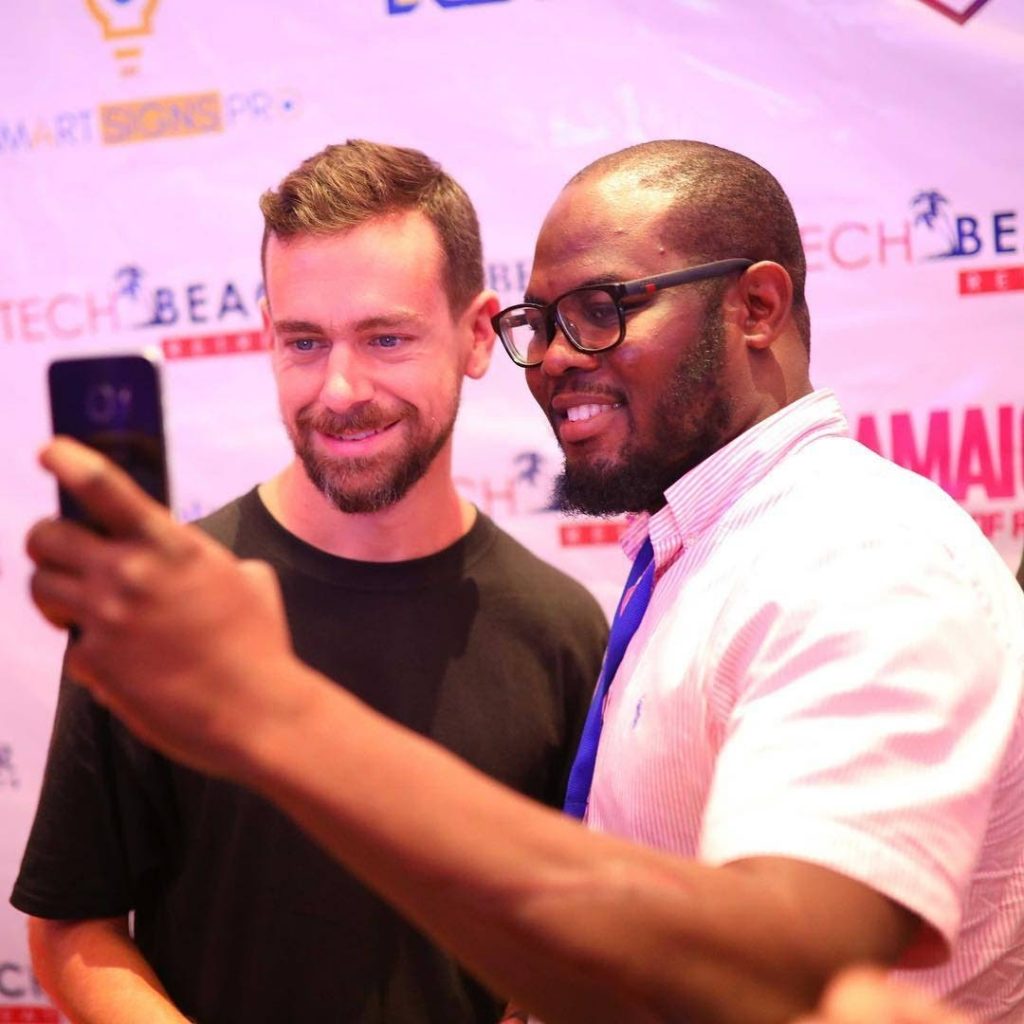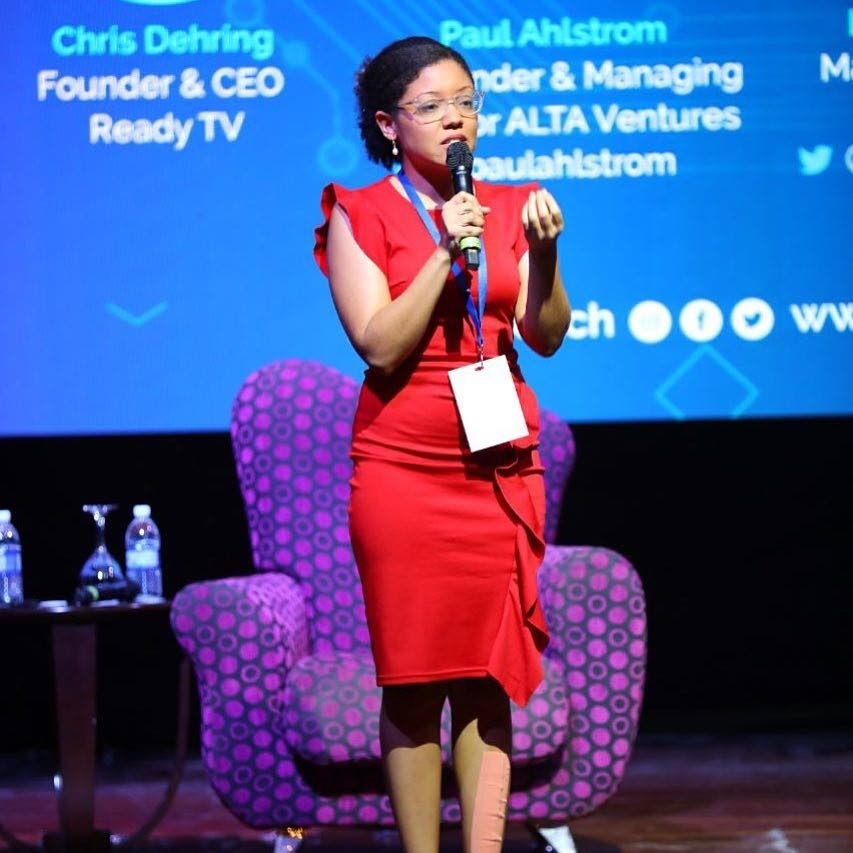Tech Beach: ushering in the next gen of ICT leaders

Digital adoption appears to be slow in TT. Any millennial could express their frustrations at seeing rapid change happening in the world, such as artificial intelligence in the workplace, data-driven decisions calculated by data scientists and flexi-time facilitated by remote work.
Yet in TT people are chained to a desk, make decisions that do not use data analytics and have human labour do functions that can be easily automated with a computer program.
The digital revolution is not a dream of the future, but is happening now.
This is the view of Kyle Maloney, 32, and Nicolas Maloney, 30, brothers and business partners who have founded several technology businesses.
The brothers both went to St Mary’s College and have BAScs in aerospace and aeronautical engineering from Embry-Riddle Aeronautical University.
Newsday met with them at One Woodbrook Place on September 19 to discuss the need for technology education at all levels.
They host Tech Beach Retreat, an international technology conference that brings digital leaders from all over the world to meet with Caribbean professionals. Executives from leading companies such as Twitter, Facebook, Instagram, Google, Amazon and Netflix have all attended Tech Beach Retreat in Montego Bay, Jamaica.
The Maloney brothers believe digital adoption is so slow in this country because the education system inadequately prepares students for the current digital landscape.
“They have been brought up and educated in a system that has not equipped them for the realities of today. Our universities are producing people with bachelors and masters degrees, but they are not being equipped for the digital world – that is not our future, it is actually our present.

“When you finish your degree in marketing you don’t actually have strong skills in digital marketing, and that’s unfortunate. You finish your degree in economics, but you’re not equipped to be a data scientist. You’re dealing with all these economic data, but you’re not equipped to do technical things with it,” Kyle said.
Marketing, logistics, finance, maintenance, accounting and everything in the working world utilises technology to make operations more efficient. Yet leaders of organisations are struggling with how to deploy these technologies in their businesses.
“We might be leaders in some respects, but we are not leaders in technology by any means. Our education is not equipping them with the knowledge and they are not coming out confident to make the decisions,” Kyle said.
There have been three Tech Beaches so far, and this year there will be two: one in Bermuda on fintech and one in Jamaica. Their main goal is to develop technology education at all levels.
Last year’s Tech Beach included a workshop on digital marketing from Facebook, where small businesses got insight into how the Facebook algorithms were going to perform the following year and how best to tailor their digital marketing strategies.

“People were sitting there with their mouths open. We are all on Facebook, we are all running advertising, and there’s someone from Facebook who could tell us this is what we need to do with our ads, and if our campaign is not performing and this is how you create a good campaign. That isn’t available online,” Nicolas said.
That workshop was geared towards the start up community. Facebook wanted to do workshops with small- to medium-size businesses to prepare them to use their platform.
The Ministry of Planning and Development sponsored 20 companies, sending the founder and co-founder of the businesses to Tech Beach. They participated in a curated experience with a combination of workshops, panel and roundtable discussions created just for them.
The workshops included topics such as digital marketing, utilising data and design. The start-ups had an eight-hour workshop at Tech Beach with Facebook and Instagram’s Creative Shop, an internal unit which works with advertising agencies to produce quality content for brands.
Genesis of the techie island vibe
Kyle and Jamaican entrepreneur Kirk-Anthony Hamilton founded Tech Beach out of a love for the Caribbean and a deep desire to help see it progress technologically. Nicolas is a director of the company.
“I want to be in a place where I like to be in and not have to move somewhere else, to someone else’s country, to talk about how good my Caribbean culture is, but I don’t actually live there. We took it upon ourselves to help build a country we are happy to be a part of and be in versus just sitting down and waiting for it to come by,” Kyle said. Though the brothers have a love for their country, they encountered little love from TT when trying to organise Tech Beach here. Jamaica, however, jumped at the opportunity to host some of the tech giants of the world.

“If you take a look at the Jamaican economy as it is right now, they are super aggressive and things are going really well for them. They are focused on technology. Their market is a lot more prime to doing this.” Another bonus for Jamaica was that the country had multiple luxury all inclusive resorts to create the ideal island vibe for the retreat. “In Jamaica, the experience is some of the best in the world, compared to a regular conference where people dress up in a suit and tie and that brings a sort of vibe to it.
We have a total opposite vibe. You could dress up to come to Tech Beach in your coloured pants and regular shirts, and people wear shorts on our panels on stage,” Kyle said.
One person from Netflix wore his Netflix shirt, shorts and flip-flops on stage. Jack Dorsey, CEO and founder of Twitter, who attended last year’s conference, wore sandals and jeans.
“We remove all hierarchy, so you can’t judge someone based on how they dress and how they look. We can’t judge if they are a big deal by any means and we allow people to connect, as we’ve coined it: ‘Connect across their passions and not over their positions,’” Kyle said.
They said their casual philosophy has helped foster many connections. A survey they recently did showed over 60 per cent of the people who attended Tech Beach have formed working relationships with other people who attended.
Another bonus for Jamaica was its all-inclusive resorts, so no one had to worry about money and ability to network.
If they were to host Tech Beach in TT, they would prefer to have it in Tobago, where they could continue to replicate that island feel.
“There’s something about the beach and knocking back a rum punch that just makes people connect, relax, chill,” Nicolas said.
Technology: disrupting the f--k out of the norm
The brothers are currently working on a proposal with the Inter-American Development Bank to do a series of professional development boot camps in 2020.
For the start-up community, they will offer training in how to scale their businesses. That course will be similar to the small business workshop done last year at Tech Beach, but over a six- to eight-week period.
The second group are professionals who want to upskill themselves in technical abilities. For instance, if someone has a marketing masters, they will be trained in digital marketing. Trainers from companies such as Facebook and Instagram will be facilitating. They will teach economists and anyone who is interested in data science how to utilise machine learning.
The third group will be in corporate innovation and how to drive tech innovation in the country.
Fear of change is one challenge the brothers identified in many institutional companies in TT. They say resistance to and disrupting their core product stunts the ability of the company to adapt to the fast-paced, ever-changing digital landscape.
They will have companies such as Uber come to show companies how to “disrupt the f--k out of their core product.”
Kyle recently met with Jahan Khanna, head of product – vehicle, fleet, bikeshare and future of work – at Uber. Khanna’s job is to find ways to disrupt Uber’s core product, which is taxi rideshares. It has release bikes, scooters and helicopters, and is also working on driverless cars as part of its product disruption.
Uber has given Khanna a billion-dollar budget to buy, invest and create in order to stay abreast of the demands from the consumer. He is responsible for driving innovation consistently through the company. He will speak with the large corporations about corporate innovation.
“This is not something we are accustomed to thinking about at all. Our business lines are just accustomed to protecting the core of what is, and hold on to that for as long as possible, and convince you that this is the thing you need to do – despite the rest of the world changing and doing other things,” Kyle said.

Comments
"Tech Beach: ushering in the next gen of ICT leaders"